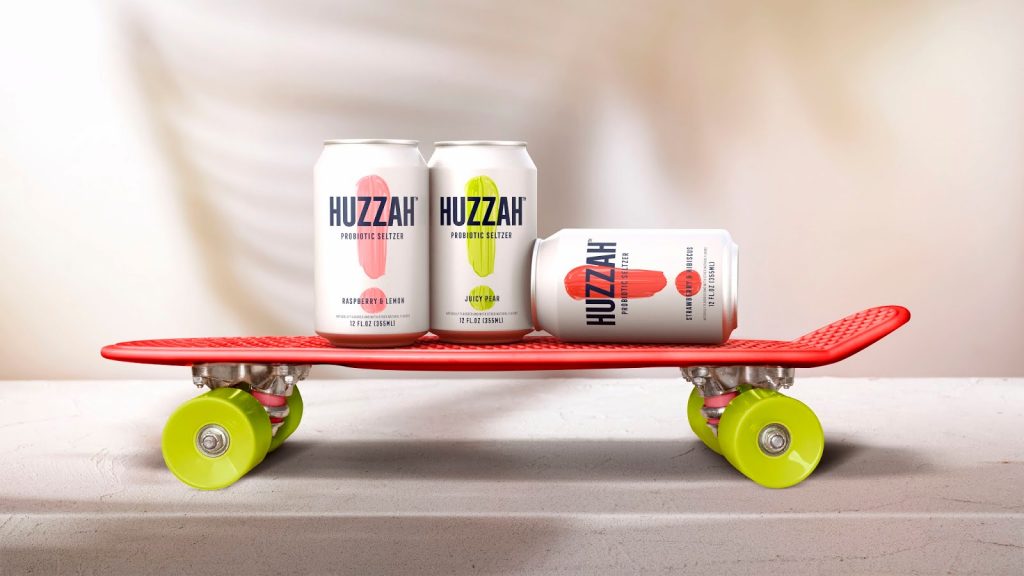The future of soft drinks
Beverage production is expected to reach $ 1.9 trillion in 2021. Of this, $ 854 billion will come from soft drinks, ranging from bottled water to ready-to-drink coffee, teas and functional drinks.
The soft drink category has found itself at the epicenter of a shift in consumer preferences, heavily impacted by the global COVID-19 pandemic. The main trends that are noticeable in this category are a decrease in calories, the use of natural flavors and sweeteners, as well as an interest in exotic ingredients, and especially in functional ones to support the immune system. Probiotic beverages in 2020 were one of the categories seeing the most significant sales growth, although the 2019 forecasts expected the target audience to buy less.
2020 will also mark the largest reduction in the consumption of high-calorie soft drinks. So over 5 years, the calorie content of drinks in the United States has decreased by 5.6% (from 203 calories per person per day in 2014 to 191.8 calories in 2019). The American Beverage Association (ABA) initiative, launched in 2014, aims to reduce the nation’s consumption of high-calorie drinks by 20% by 2025 to 162.4 calories per person per day, primarily by reducing the amount of sugar. This trend is global — a similar trend is observed all over the world.
Manufacturers are actively supporting these trends. For example, the Beverage Association of America (ABA) includes The Coca-Cola Company, PepsiCo, Keurig Dr Pepper (formerly Dr Pepper Snapple Group), and Healthier Generation — beast mastodons who have shaped the game in the soft drink industry for decades.
In this article, we will tell you what is happening now with soft drinks, so that you change your strategy, if necessary.
Water and its benefits
One of the most promising segments among bottled drinking water remains alkaline water, where the acidity level must be above 7 pH and below10 pH. In addition, it is characterized by the predominance of ions of bicarbonate salts and sodium, which provides a beneficial effect on the body — the internal environment of the human body has an alkaline environment, and the consumption of alkaline water helps to restore the acid-base balance.
Such drinks are positioned as high-quality products for healthy lifestyle and active lifestyle, and the retail price of a bottle can be 70% -200% higher than plain drinking bottled water. Global alkaline water sales are approaching the $ 1 billion milestone, according to market research firm Zenith Global.
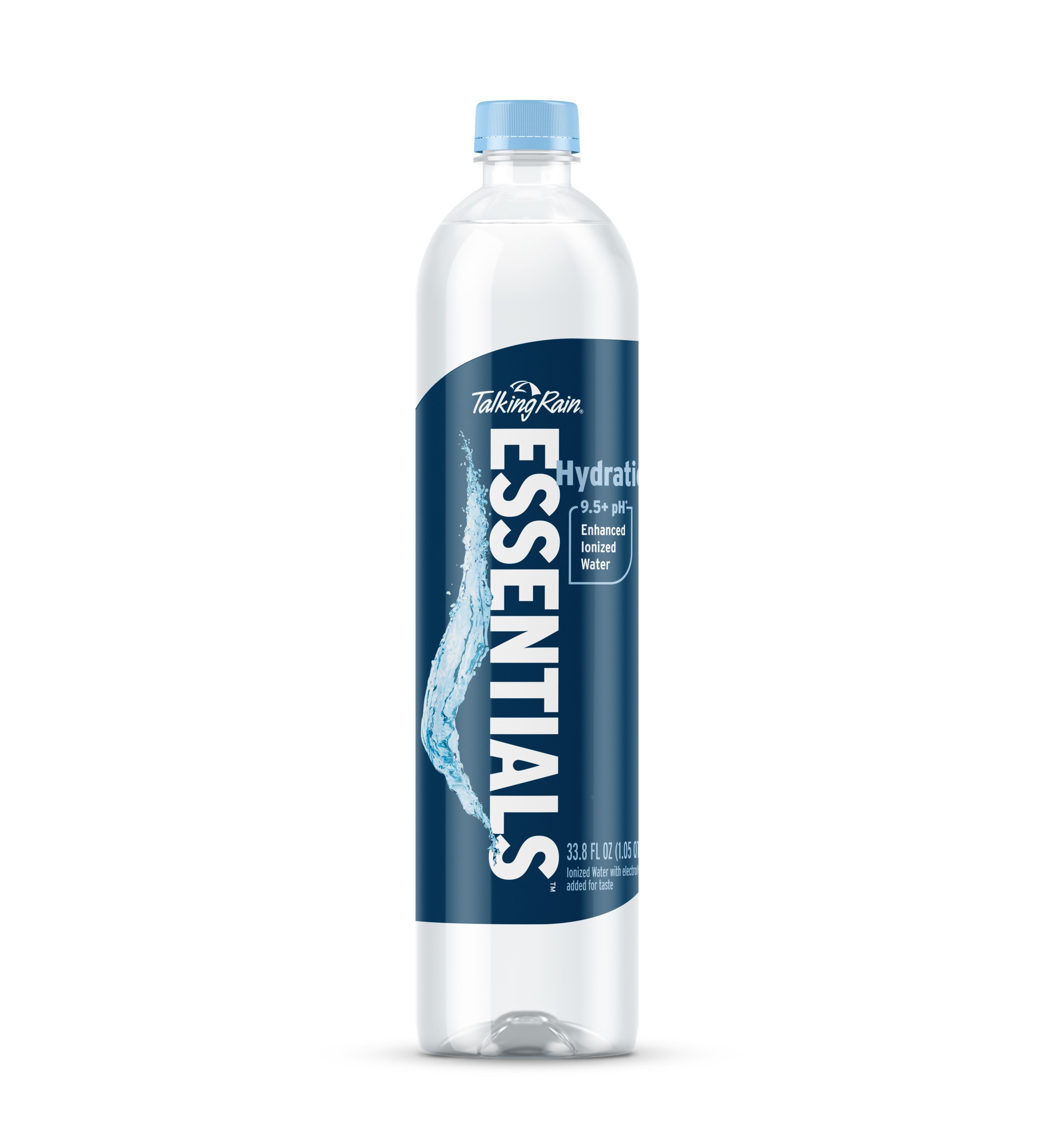
The new Talking Rain Essentials Hydration functional drinking water from the Talking Rain Beverage Company is part of the Essentials drinking brand portfolio launched in 2019.
Talking Rain Essentials Hydration is an alkaline drinking water with a pH of 9.5, minerals and electrolytes for flavor, in a 1 liter bottle.
In the growing American alkaline water market, the major brands Essentia (pH 9.5) and Core (pH 7.4), recently acquired by Keurig Dr Pepper.
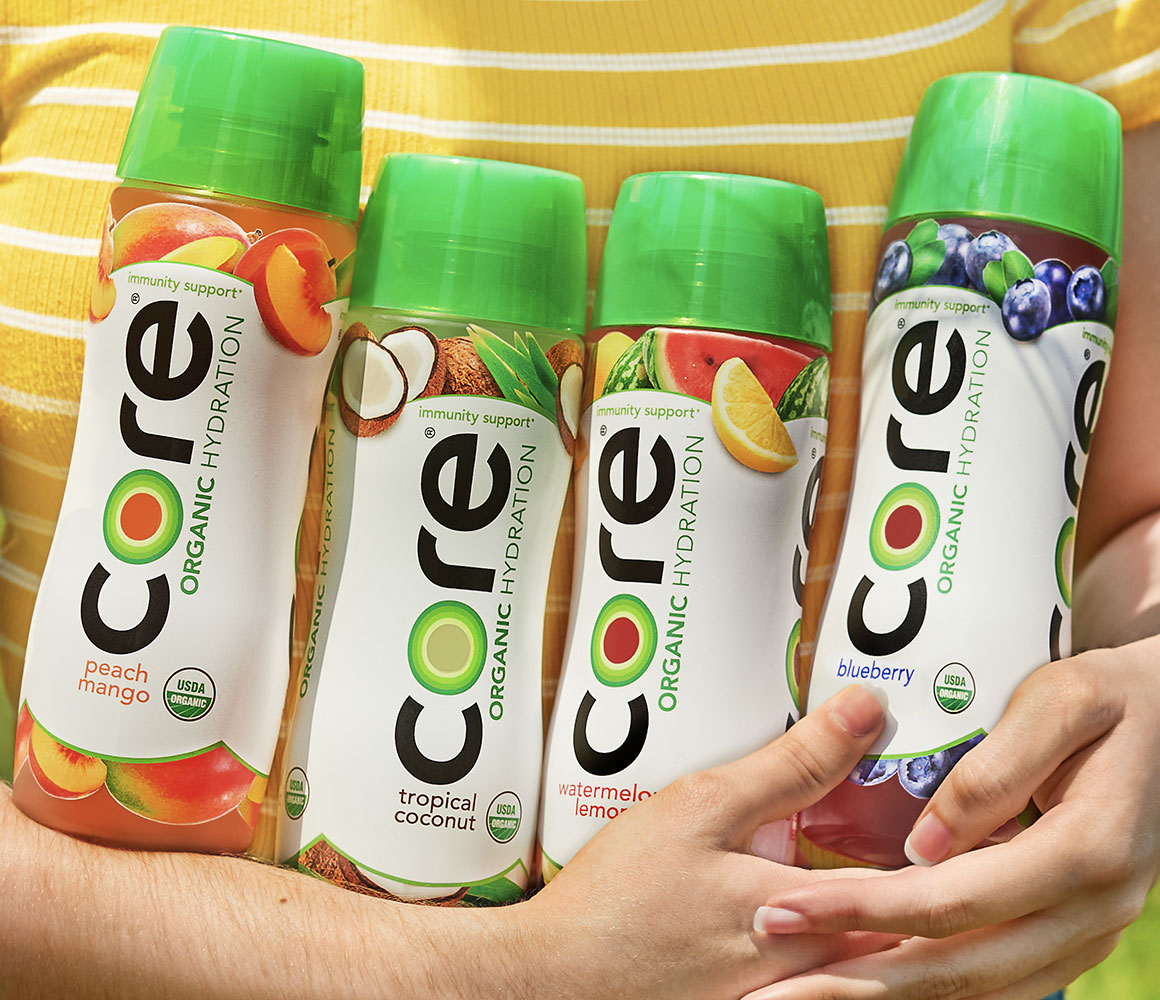
Core delighted consumers with an unusual novelty — Core Organic Hydration flavored alkaline water with 4 popular flavors, naturally completely natural and without artificial sweeteners, which is confirmed by the USDA organic certificate.
Compared to this, pink mountain salt water from the Himalayas Alcaline88 and smartwater alcaline (pH 9.0) from Coca Cola appear mainstream.
In the segment of fortified drinking water, where the main players are Coca-Cola and Pepsi with their brands Vitamin Water and Sobe Life Water, local manufacturers are betting on innovations in packaging.
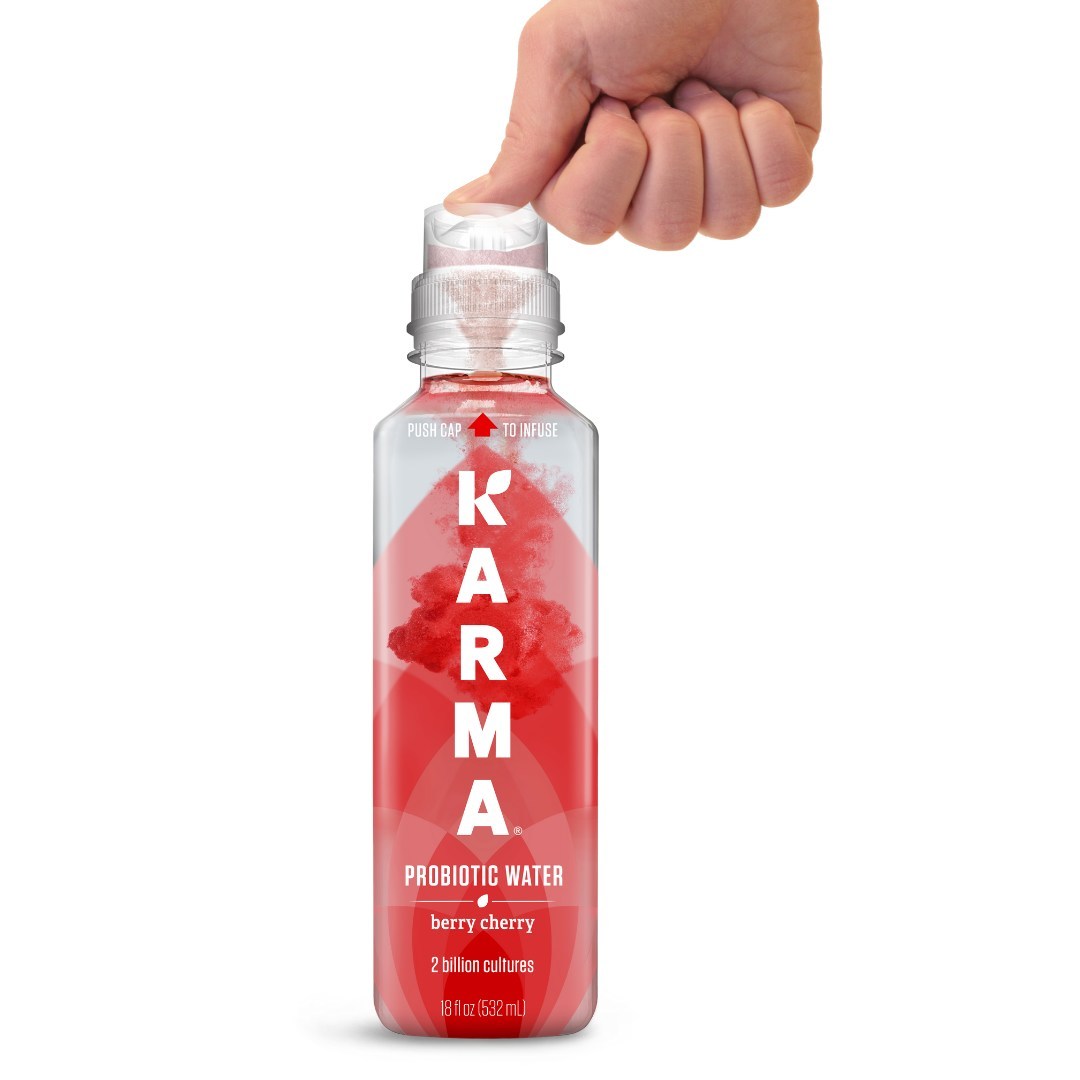
In the fortified Karma Wellness drinking water, interest is not so much in its composition of antioxidants, 7 essential vitamins, zinc, tea polyphenols and superfruits collected from all over the world, but in the patented technology of the Karma Cap cap, where active ingredients are stored before activation — to get the ingredients into water, you need to put on the lid just before use. There are only 20 calories in a bottle of Karma Wellness. The drink is free of gluten, lactose and is vegan certified. Priced at $ 2.49, it can be found at major retailers Walmart, Kroger, CVS, Rite Aid, Harris Teeter, Wegmans, and Amazon.com.
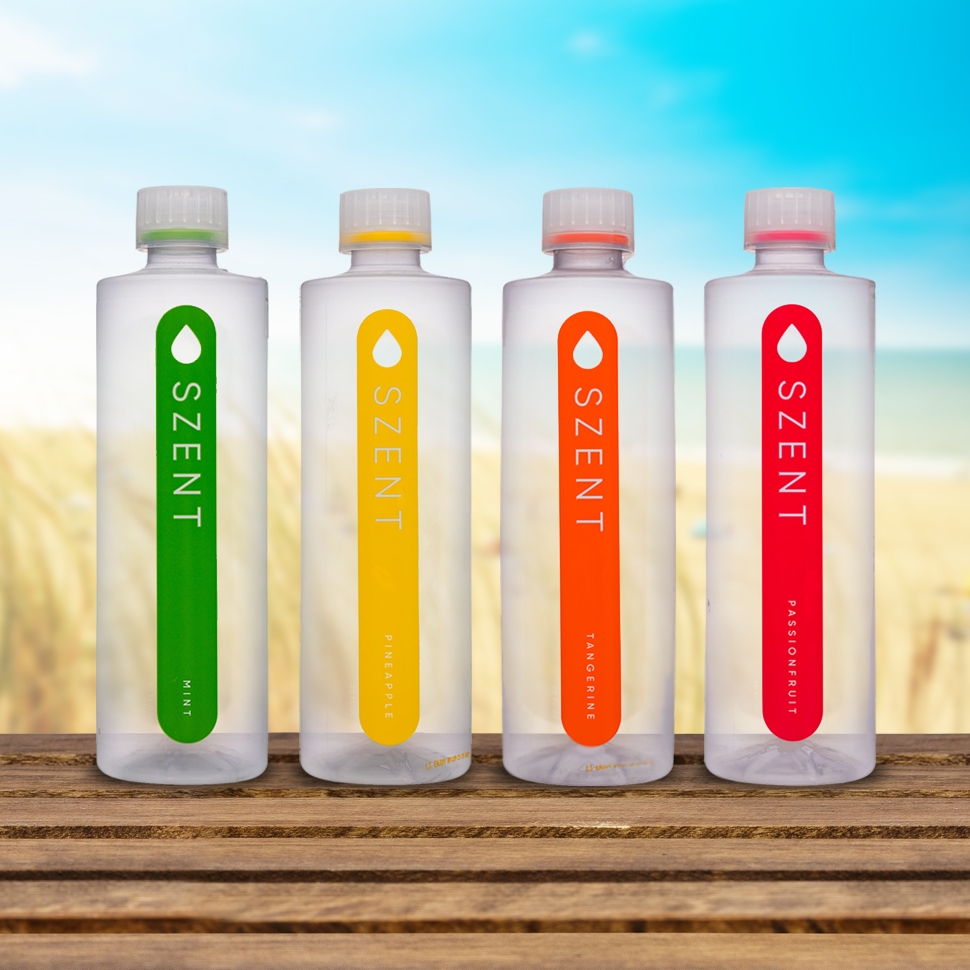
Against this backdrop, the minimalist brand SZENT, launched at the end of 2018, looks rather modest, although it is a unique concept of bottled water that offers «flavor» without adding any other additives to the water. The secret is that instead of adding flavors directly to the composition, SZENT uses only the scent to achieve the desired aroma effect. Each bottle has a patented scent ring around the neck of the bottle that is filled with natural edible oils that can effectively trick your mind into thinking the product is scented. The bottle contains pure reverse osmosis drinking water without any additives.
The only drawback to this product is that you must consume it within 24 hours of opening.
Tea that is not tea
When it comes to the segment, kombucha automatically comes to mind. The kombucha category has been actively growing over the past few years and is still the driver of the fermented beverage segment, competing only with non-alcoholic beer. However, in the United States, its consumers are about 9% of the total market. But the demand began to increase gradually.
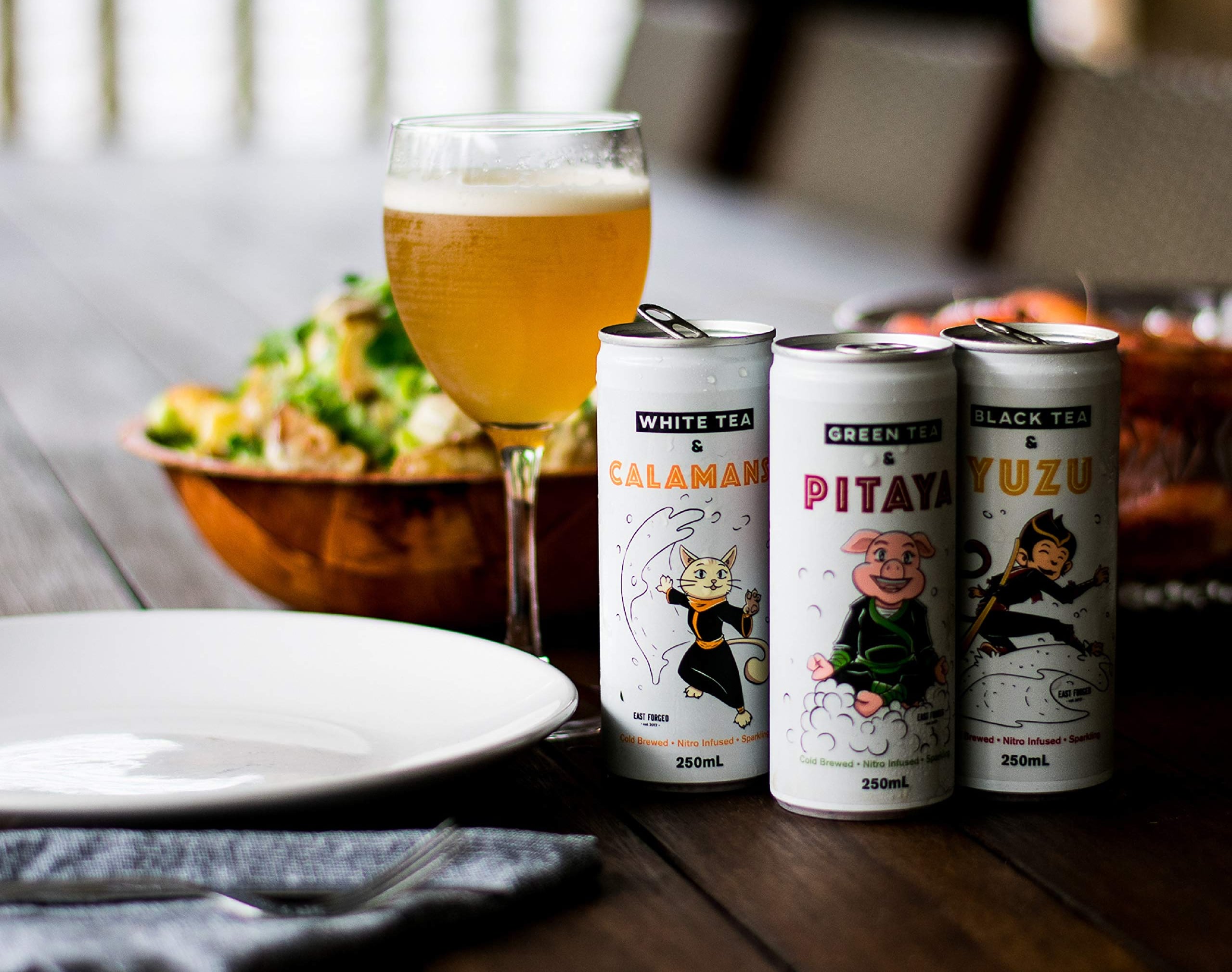
Australian brand East Forged is made like beer and looks like beer, poured like beer, but tastes like tea. Actually, this is natural iced tea. Only instead of fruit juices diluted with sweeteners, as is customary on the ice tea market, the novelty contains a mixture of natural black, green and white varieties with the addition of exotic fruits (yuzu, pitahaya and kalamansi). The effervescent texture is created by cold cooking, as in the brewing industry, for which the «tea makers» invited an independent manufacturer to the project, which gave the drink the necessary carbonation from nitrogen bubbles, which is so usual for classic beer. And it is tea in East Forged that remains the main character — its taste is very clearly traced in the drink. East Forged low-calorie, without adding sugar, artificial flavors or colors, to the delight of fans of healthy lifestyle, tea and preferring «zero» alternatives to traditional alcohol.
Curiously, kombucha products have become the very benchmark that many manufacturers in the soft drink segment are targeting. This year, the market was shaken by the novelty of the innovative brand Olipop, which has already been dubbed «what remains after kombucha.»
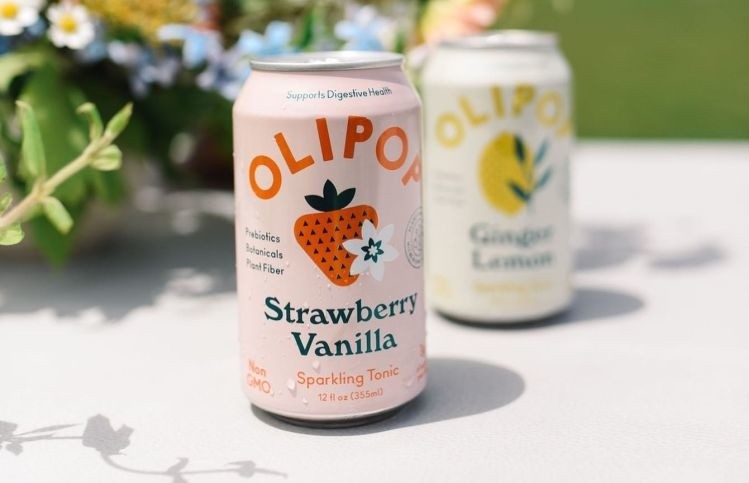
Olipop – is a functional beverage brand, opening up new territory in the functional carbonated beverage category. It includes all the benefits of prebiotics, plant fiber, and plant components to support the microbiome and improve digestive health. Olipop was launched at the end of 2018 and is aimed at those consumers looking for drinks with a low sugar content and additional functional properties. Each can contains 9 grams of fiber, 3 grams of sugar and only 35 calories.
According to one of the founders of the company and part-time CEO Ben Goodwin: «Sales in 2020 grew by almost 900%, although in 2019 they were relatively small.»
Taste and benefits
A win-win solution for the manufacturers of new products was the concept of «health drinks» for adults and children, as well as drinks in the «food class» (FFC).
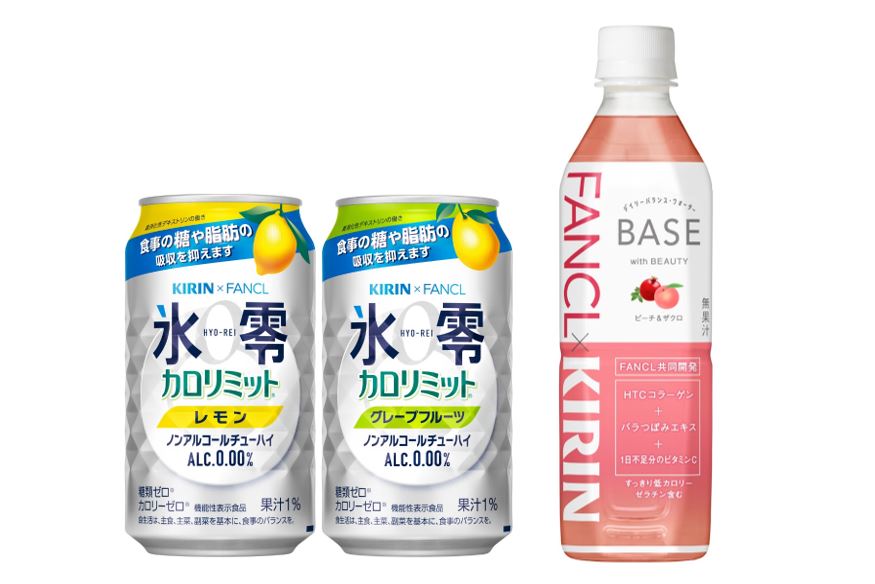
The Japanese alliance of Kirin and FANCL (last year the Japanese beer giant Kirin acquired 30.3% of the shares in FANCL) announced the release of 2 new products in the category at once.
One new addition, Kirin × FANCL Non-Alcoholic Chu-hi Hyorei Calolimit comes in two flavors, lemon and grapefruit, and contains 5 g of dietary fiber, which helps reduce the absorption of sugar and fat. The recommended dose is one can of drink (350 ml, price $ 1.4) per day, taken with food, and is intended for people over 20 years old.
Another novelty is Kirin x FANCL BASE flavored water, which contains 500 mg of collagen, 5 mg of rose extract and 27 mg of vitamin C, intended primarily for women as a daily beauty drink. The 500 ml bottle is priced at $ 1.30 sold in FANCL brand stores.
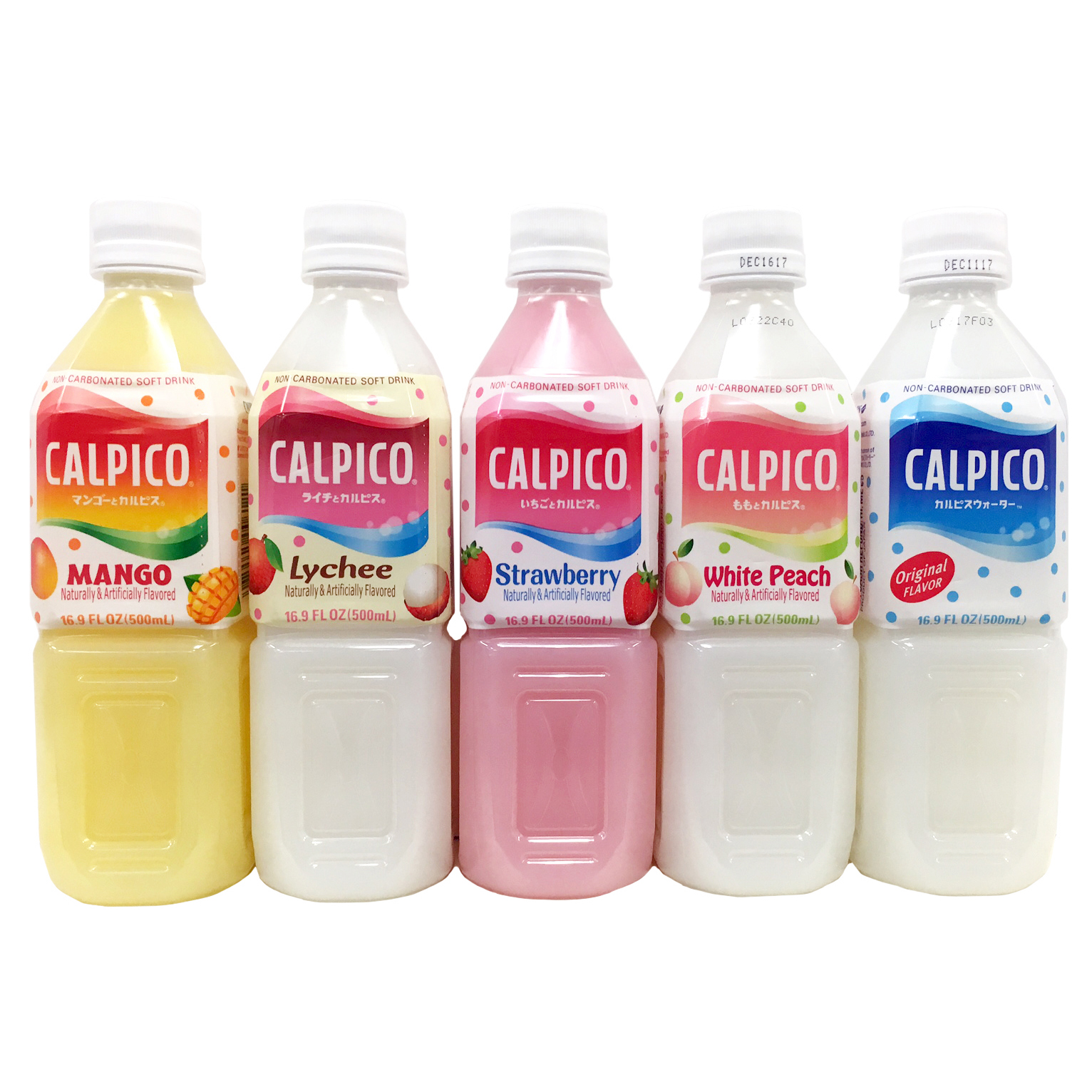
Asahi Soft Drink Ltd (subsidiary of Asahi Group Holdings) expands the line of the famous Japanese brand Calpico for the US market. First launched in Japan in 1919 (marketed under the Calpis trademark in Asia), the still milk-infused beverage was introduced to the US market almost 30 years ago. It was sold mainly in specialized stores with an Asian focus. Everything changed with the pandemic — Calpico became a real darling in the segment of drinks in the USA.
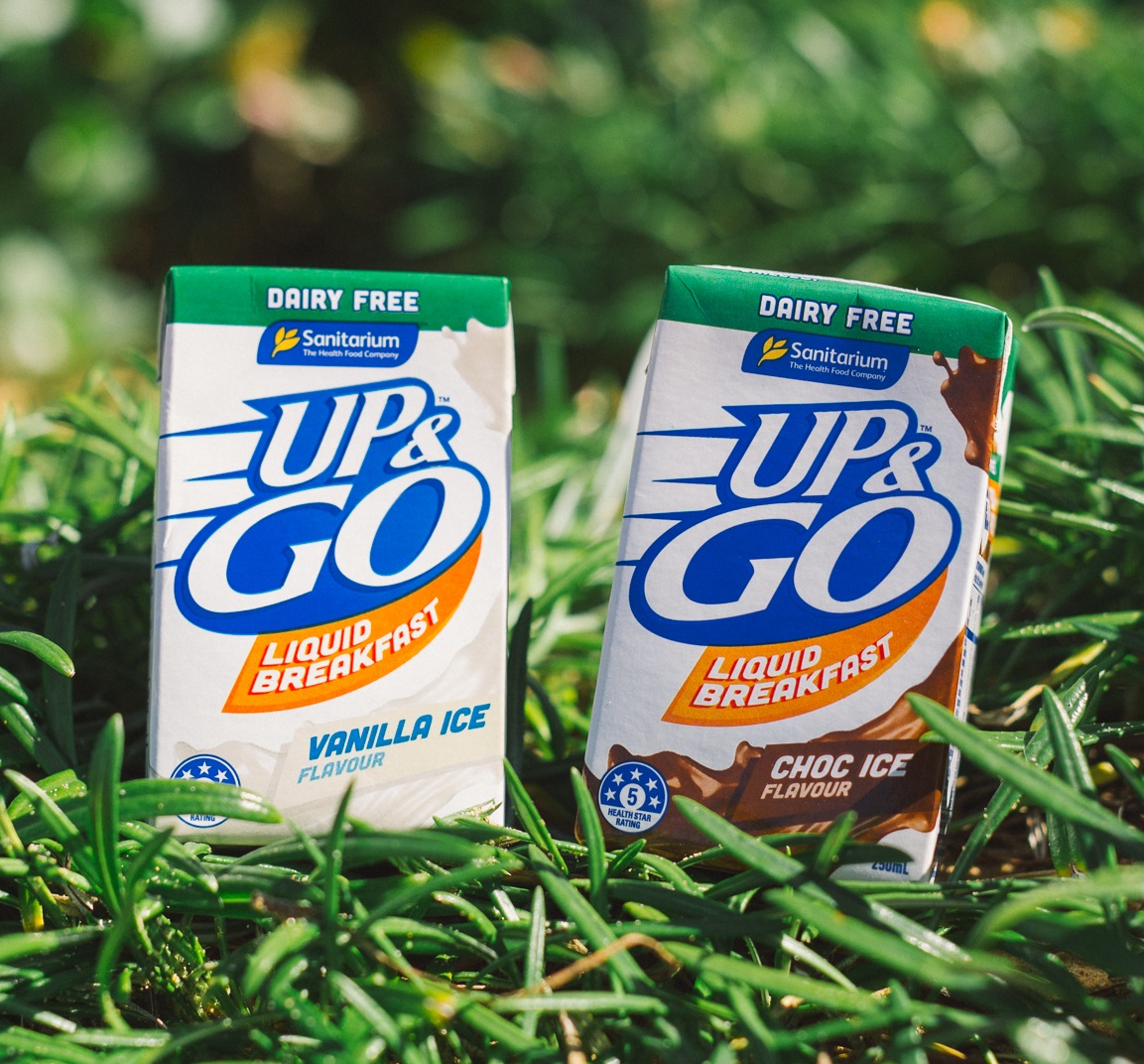
Australian brand UP&GO has created a gluten-free version of their breakfast drink, UP&GO Dairy Free.
It retains all the nutritional benefits of the original UP&GO, but has been significantly enriched in nutritional value with protein, fiber, 10 vitamins and minerals, including calcium and vitamin B12, which are essential nutrients for dairy-free diets. In addition, UP&GO Dairy Free has a low glycemic index and is ideal for people with an active lifestyle. 2 SKU — Choc Ice and Vanilla Ice are already available in leading supermarkets in Australia.
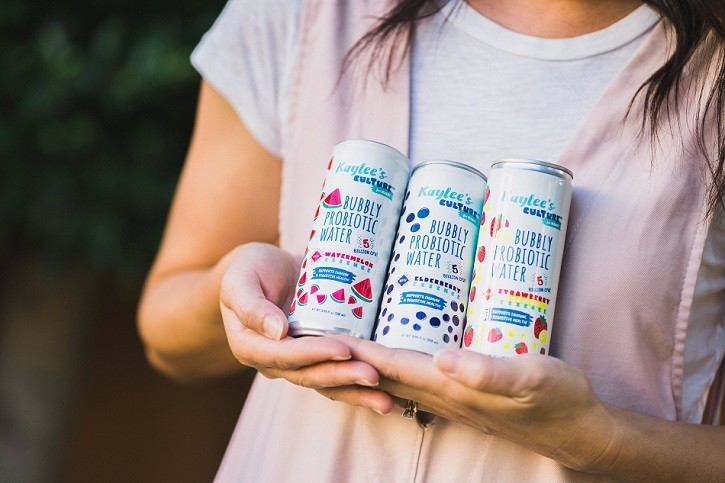
Kaylee’s Culture sees children as their consumers. The market for water that children would like to drink is extremely narrow. This is a serious problem for many parents looking for more than juice, water, or dairy products on store shelves. Selling kombucha to children is also difficult, as non-alcoholic kombucha still contains low levels of alcohol (less than 0.5% alcohol). The result is Bubbly probiotic water — the first organic probiotic drinking water for children.
Test sales of 3 SKUs started in 10 Los Angeles stores and showed good results. Kaylee’s Culture founder Kaylee McLaughlin believes the product has the potential to expand beyond the West Coast.
Healthy soda
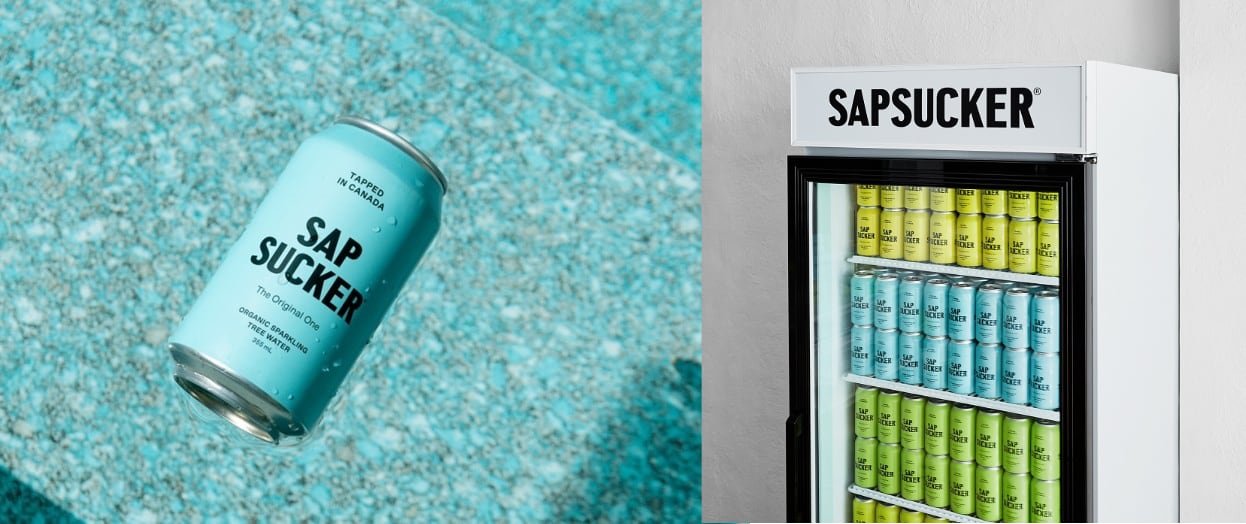
Launched January 2020 in Canada, the Sapsucker brand of organic sparkling maple water can now be found in nearly 500 Canadian retail stores including Sobeys, Whole Foods and Loblaws. According to the company, farmers collect water from trees in the spring, which does not harm maples and allows them to continue production throughout their natural life (up to 200 years), without disturbing groundwater resources at all. The naturally collected maple water is then carbonized and citric acid and natural fruit extracts are added for product stability. A 250 ml can of Sapsucker is only 35 calories and contains 46 naturally occurring nutrients.
Sapsucker plans to enter the US market in 2021 and hopes to win US consumers as much as coconut water, which accounts for 75% to 80% of the North American market.
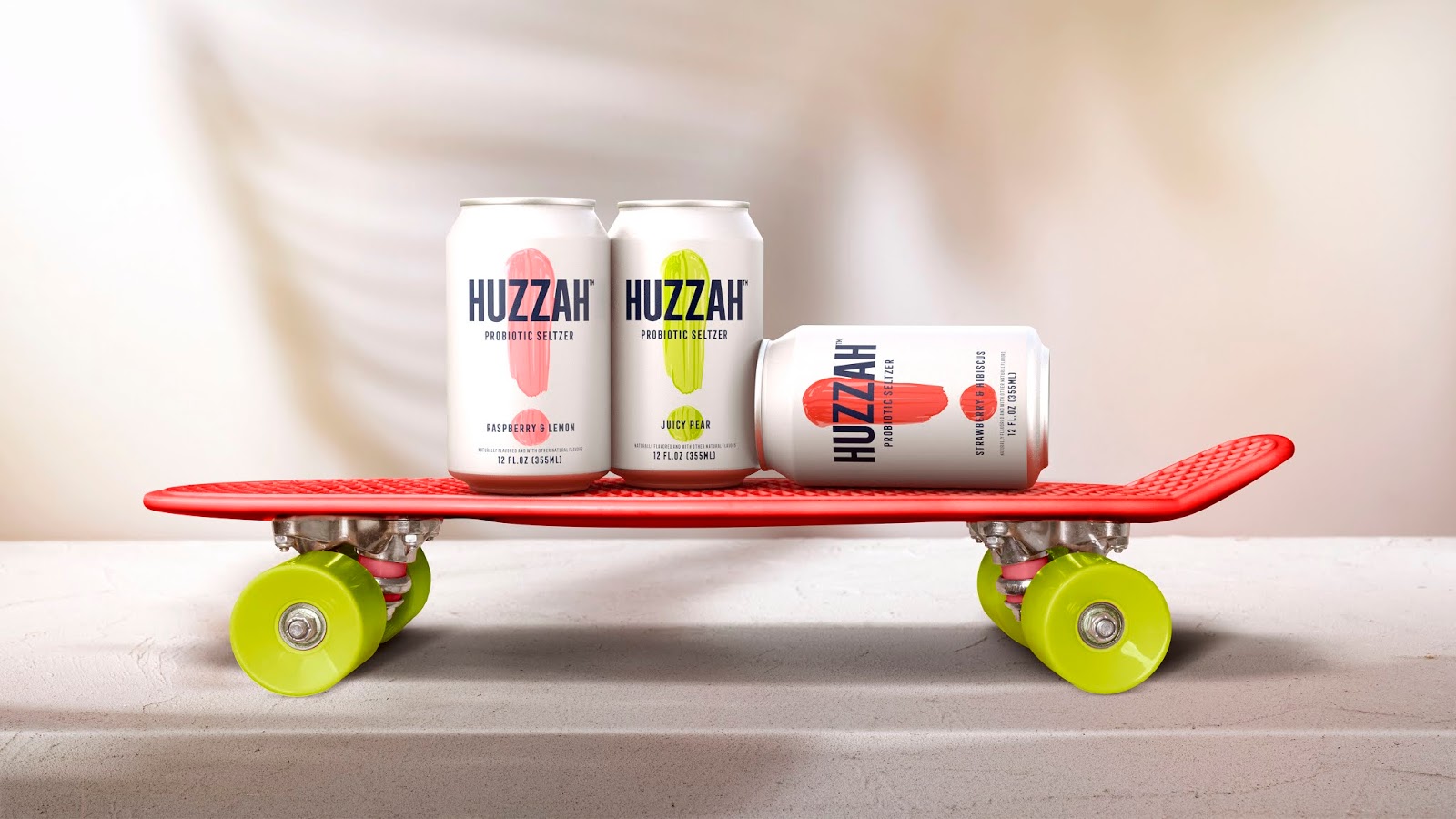
Canadian beer giant Molson Coors has developed a new line of soft drinks at its LA Libations Libations beverage incubator, which will launch in the next few months. Having trained in the low-alcohol hardzeltzer market, the manufacturer is now ready to offer customers a functional drink — a probiotic soda, in the hope of reaching all those who do not consume kombucha.
Such a novelty for the «active and positive» will be the HUZZAH brand, which will first be available in retail stores in Southern California, and then will spread throughout the country. A 350 ml can contains less than 3 grams of sugar and only 15 calories.
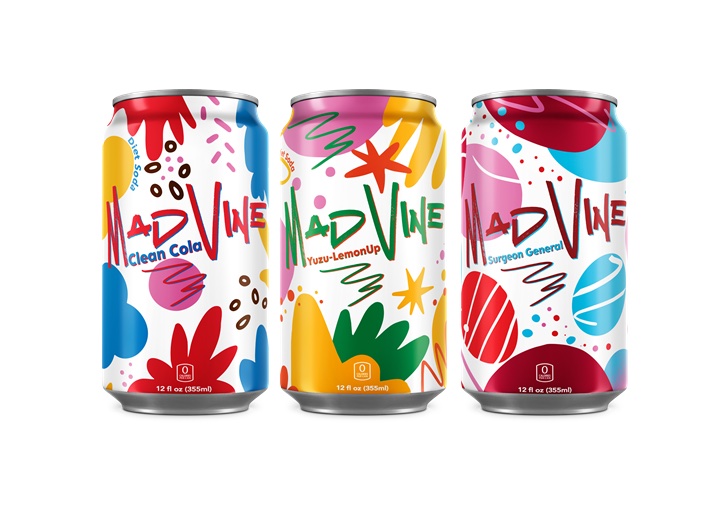
In addition to their entry into the functional soda category, LA Libations and Molson Coors are set to release MadVine, a zero-sugar soda with no artificial ingredients. Quite in the trend of «pure soda». 3 SKUs are available to customers in Southern California, with its distribution expanding nationwide. The beer giant is serious about competing with Diet Coke.
Stay calm
At the end of the article, we have added information about specialized drinks that are acutely responding to the challenges of the moment, directly related to the COVID-19 pandemic.
The coronavirus panic has completely undermined the mental health of consumers around the world. Due to the high prevalence of stress, due to persistent anxiety about worsening personal financial problems (a recent report from Accenture noted that 90% of people in 15 countries covered by the study are very worried about their personal income declining) found, first of all, sleep problems.
The results, presented by the MMR team of experts, show that people are already willing to buy food and drinks to address insomnia, anxiety, and mental focus. To which the manufacturers immediately reacted.
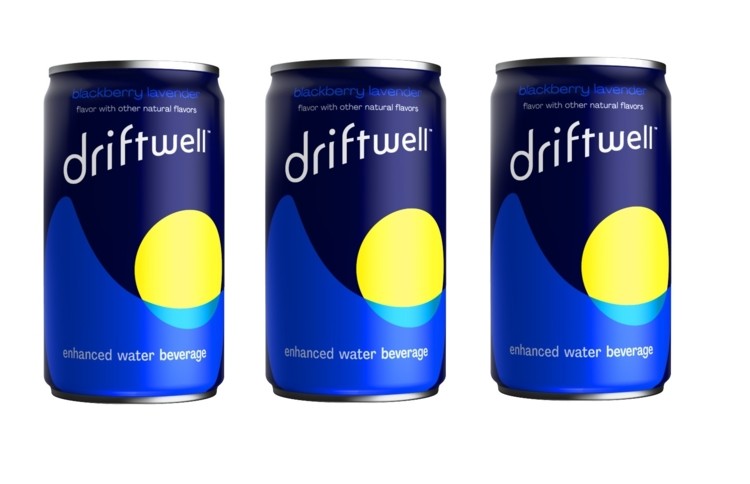
Driftwell, a non-carbonated functional drink from PepsiCo, contains L-theanine «to help you relax.» A 220 ml can contains 200 mg of L-theanine, 10% of the daily value of magnesium, 0 calories and 0 sugar. The novelty is ideal for those 55% of Americans who regularly experience severe stress during the day and 45% of consumers who cannot sleep at night due to constant stress.
Anything that helps consumers «relax and sleep» will be in great demand for a very long time. And in the conditions of the expected economic recession, this segment may become the very «blue ocean» that many manufacturers dream of.
Thus, the target audience formed a new segment of the market water, almost displacing sweet and alcoholic beverages from sales. The trend is not flavoring additives, but beverages with vitamins or made with natural ingredients. The higher the coefficient of utility in one gulp — the higher the demand from consumers. Even the children’s segment is growing more and more assortment of healthy and natural drinks, rather than soda.
